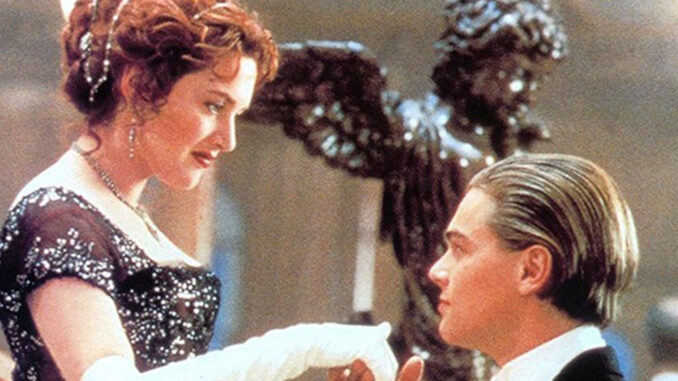
The Titanic's Not-So-Unsinkable Blunders: Movie Mistakes That Rose to the Surface
James Cameron's "Titanic" is a cinematic behemoth, a sweeping romance intertwined with a tragic historical event that captivated audiences worldwide. Its scale, special effects, and emotional resonance are undeniable. Yet, even a film of this magnitude, meticulously crafted as it may be, couldn't escape the icy waters of factual inaccuracies and cinematic gaffes. These aren't nitpicks for the dedicated historian; these are the obvious mistakes, the gaffes that poke through the glossy veneer of Cameron's epic and remind us that even a titan can stumble.
One of the most glaring issues, one that has launched countless internet debates and fueled years of frustrated whispers, is the timeline. The film stretches its narrative liberties further than a lifeboat capacity on that fateful night. Realistically, the Titanic took about two hours and forty minutes to sink after hitting the iceberg. The movie, however, portrays the sinking as a much more protracted event, allowing for ample time for Jack and Rose's dramatic farewells, Cal's manic pursuit, and the band's unwavering performance. While dramatic license is understandable, this distortion of time alters the very fabric of the tragedy, diluting the sense of urgency and the horrific speed with which so many lives were lost.
Beyond the overarching timeline, smaller, but equally noticeable, discrepancies surface. Consider the infamous "fixed-point" scene where Rose, teetering on the edge of the deck, is persuaded not to jump by Jack. In the film, the stars are depicted with pristine clarity, showcasing a vast, unpolluted sky. However, historical records and astronomical calculations reveal that the stars visible on the night of the sinking would have been considerably different. While the scene is undeniably beautiful, its romanticized portrayal of the night sky feels more like Hollywood magic than historical accuracy. The sheer brightness and arrangement of the constellations serve as a constant, glittering reminder that we're watching a fantasy, not a perfectly reconstructed reality.
Furthermore, the costumes, while undeniably stunning, sometimes betray their 20th-century origins. Rose's elaborate gowns, particularly the "swim dress" she wears during the escape, are often too contemporary, featuring designs and materials that wouldn't have been readily available in 1912. This isn't to say the costumes are unattractive; on the contrary, they contribute to the film's visual appeal. However, their subtle anachronisms chip away at the film's immersive quality, reminding us that we're observing a carefully constructed performance rather than a genuine window into the past.
Perhaps the most pervasive mistake, and arguably the most forgivable, lies in the portrayal of accents. While Kate Winslet manages a convincing upper-class British accent, many of the American characters, particularly those in steerage, speak with overly broad, stereotypical accents. While meant to depict the diverse backgrounds of the passengers, these exaggerated portrayals often veer into caricature, undermining the authenticity of their stories. The lack of nuanced regional dialects and the reliance on tired tropes detract from the film's attempt to humanize the victims of the disaster, inadvertently reinforcing stereotypes rather than celebrating diversity.
In conclusion, "Titanic" remains a cinematic landmark, a film that continues to resonate with audiences due to its powerful story and breathtaking visuals. However, its historical inaccuracies and cinematic blunders are too obvious to ignore. These mistakes, ranging from timeline distortions to costume anachronisms and questionable accents, serve as a reminder that even the most ambitious and meticulously crafted films are susceptible to errors. While they don't necessarily sink the entire production, they do create small cracks in the illusion, reminding us that we are watching a constructed narrative, a grand romance built on the foundations of a real, and ultimately more complex, tragedy. They are the icy reminders that, even in the realm of cinematic masterpieces, the water is often deeper than it appears.